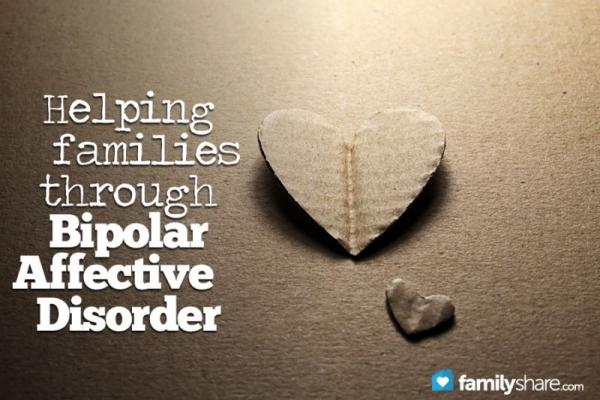
Dealing with someone who is bipolar is a mixed blessing at best. At worse it can rip a family apart and scar for generations.
Yes, that's a bit frank. However, it's best that you know what you are up against. Different than a dam that is leaking, Bipolar Affective Disorder can be maintained. One just needs to set a course for the stream.
Getting a loved one who is showing many of the signs of Bipolar Affective Disorderto see a doctor is vital. You may need to cajole, possibly a little begging. While duct tape and a gunny sack are not recommended, you may need to be similarly tough.
One of my friends had to make a thinly veiled threat: "Go with me to the doctor now or I will be finding other accommodations." He and his family had been through so much that he felt this action was necessary. With others dealing with the same problem, a family meeting or intervention is required:
"We love you, and you need help."
Once you are at the doctor or the health care professional, be truthful and help your spouse to be the same. Now is not the time to be evasive or worry about what the Joneses are going to say. The Joneses are dealing with their own problems.
The doctor may prescribe some medication right then and there. Treatment of Bipolar Affective Disorder currently consists primarily of pharmacotherapy. Many medicines that assist with bipolar take several weeks to become effective. Taking a pill for three days and pronouncing oneself as cured is foolish.
There may be one or more pills. Don't let your loved one pick which he will take. If they are going to help, anything prescribed needs to be taken as directed by a professional. Like a pair of glasses, these medications exist to make our lives better.
Even those who have been on some pharmaceutical assistance for several years still see the doctor for what I call loon-atude checks. "How loony do you feel?", "Is it manageable?", and "What can we do to help?" are some of the questions regularly asked.
Yup. Loony. I said it. It's so much more manageable for my family and me when we can keep a lighthearted attitude. I even have a bird call - a loon - that the children recognize that I use to gather up the family. I use that term myself so others know that the subject is not off-limits for discussion. It also empowers me. I know what's up and I can make important changes. I can be valuable to my family instead of a liability.
In family meetings, I often ask what they need from me, and what I can do for them. This is an opportunity for them to share how they feel about my progress. If they have nothing to say, then so far so good. If they ask me if I have had a change of medications recently, I ask why and we go from there.
I'm not talking about making fun or putting down. Coming out at dinner and asking if I took my pill today may get you on a time out until we can talk.
Until things are on a bit more of an even keel, here are some good things for family to be aware of:
Your family member is still human. Among other things, his perceptions are off.
You may need to put financial accounts in a responsible party's name for the time being. Good luck with that.
Talk about feelings and situations. Remain open to new possibilities.
Talk about it. It bears repeating.
It's OK to use humor and have fun in life. Laughing is OK, too.
Remember to have a sensitive side. Saying things like, "Wow, did you take your pill today?" is probably best left unsaid.
Come up with a key word or phrase to be able to communicate a thought or idea quickly to represent things you have discussed, such as: "You are coming across as way over the top," or "You are being invasive," or even "Your moods are swinging so much that people are getting dizzy."
Keep your expectations real. A pill is not going to make your loved one go from Carrie to Pollyanna overnight.
Your spouse is unique and different. Remember the things about him you fell in love with. Some of them are a result of your spouse's different chemistry.
You do not have to be the perfect partner to ask your bipolar spouse to make adjustments in behavior. Though, sometimes, making a deal is helpful and supportive. While you are not responsible for your spouse's chemical problems, it may be nice for him to know that you are in this thing together.
Working as a team will have greater benefit. Studies have shown that early detection and intervention are particularly important to keep mild changes in mood states from spiraling into more severe and prolonged conditions.
The success of all of these suggestions is based on a loving, trusting relationship.
Above all else, stay positive. Yes, dealing with Bipolar Affective Disorder can be a literal nightmare, but there is good out there to be had with knowledge and consistent maintenance. Here are other ways to cope with a bipolar spouse.

